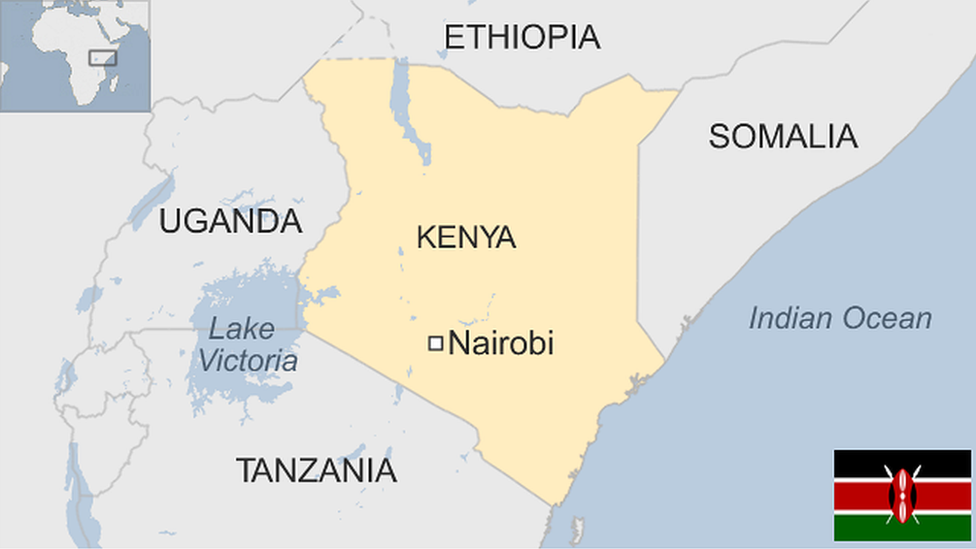Did Kenya presidential debate make a difference?
- Published
Kwendo Opanga, explains to the BBC that the debates offers smaller parties 'an opportunity to shine'.
As millions of viewers were glued to their television sets on Monday to watch the first ever presidential debate in Kenya, the seven male candidates, dressed in immaculate suits, walked to the podium and onto lecterns finely laid out for them at a private school in a suburb of the capital, Nairobi.
Martha Karua, the only woman on the podium, was elegantly dressed in a flowing African printed outfit.
They exchanged friendly handshakes and smiles before settling down for the gruelling debate.
Each was given two minutes to state why they wanted to become the fourth president of Kenya in the 4 March election, with the audience of about 200 later given a chance to ask them questions.
Earlier, the debate was hit by uncertainty when one of the candidates who had not been invited to take part, Paul Muite, went to court to demand his inclusion.
The High Court in Nairobi directed the local media groups who organised the debate at a reported cost of $1.1m (£700,000) to include him and another excluded candidate, Mohammed Abduba Dida.
The organisers caved in, reversing their decision to leave the two out on the grounds that when the debate was visualised they had not shown an interest in the presidency.
The debate was expected to last for two hours, but overran by more than an hour with the eight candidates remaining on their feet for the entire period.
'Taken to task'
It was the International Criminal Court (ICC) case against four Kenyans - including presidential candidate Uhuru Kenyatta and his running mate William Ruto, who are accused of fuelling the violence that broke out after the last election in 2007 - that took centre stage.
Mr Kenyatta, one of the frontrunners for the presidency, was forced to fend off claims of impunity, as he was put on the spot by the moderators and his presidential challengers, who demanded to know why he would not pull out of the race to concentrate on the case at the Hague.
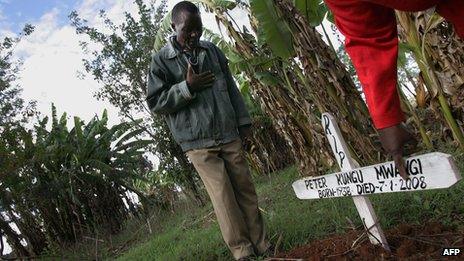
More than 1,000 people were killed in Kenya after the last election
Mr Kenyatta and Mr Ruto have been indicted by the ICC for crimes against humanity emanating from the violence that killed more than 1,000 people and forced about 300,000 people from their homes after the disputed election that was won by President Mwai Kibaki, who is now stepping down after two terms.
Mr Kenyatta said he and Mr Ruto were innocent and would defend themselves vigorously at The Hague. The case would not prevent him from discharging his presidential duties, if he was elected, he said.
Mr Kenyatta's main rival, Prime Minister Raila Odinga, was also taken to task by one of the candidates for the violence which engulfed the country after the last election.
Mr Odinga said he was cheated of victory by allies of Mr Kibaki through widespread fraud.
Their supporters then clashed for two months, often targeting people along ethnic lines, until a deal was brokered which saw them agree to share power.
During the debate, Ms Karua said the violence would have been avoided if Mr Odinga's Orange Democratic Movement (ODM) had challenged the outcome through the courts rather than on the streets.
Mr Muite criticised the ICC's chief prosecutor for charging Mr Uhuru and Mr Ruto, instead of Mr Kibaki and Mr Odinga - the main candidates in the 2007 election.
He said if his party won next month's election, he would re-open the case to have the two explain their role.
"There's no way the two would not have known what was happening," Mr Muite said, during the three-hour debate conducted in English and broadcast on all local television stations and 34 radio stations.
Mr Odinga, on his part, cautioned Kenyans against electing a president who would spend most of his time at The Hague trying to extricate himself from crimes against humanity charges.
"You cannot run a country through Skype," he quipped.
The candidates also talked about ethnicity, education and health in the debate.
After the gruelling three hours, their family members and supporters were invited to join them at the podium.
Mr Odinga and Ms Karua were joined by their grandchildren.
Kenyans who spoke to the BBC in Nairobi and the western town of Nakuru were impressed with the performance of Ms Karua, the only woman candidate.
However, few said they would change the way they intended to vote.
This is not entirely surprising as voting patterns in Kenya are usually dictated by ethnic loyalties.
University of Nairobi academic Herman Manyora told the BBC the debate was of little value as Kenyan had an insignificant middle-class that would have been influenced by the performance of some of the candidates.
- Published8 February 2013
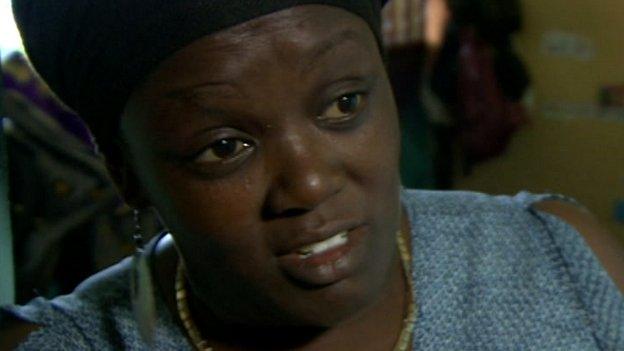
- Published27 November 2012
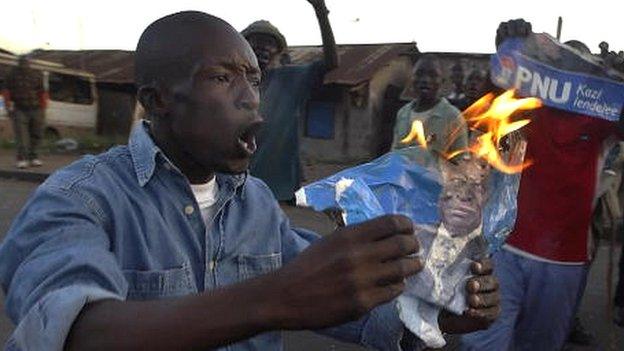
- Published16 October 2012
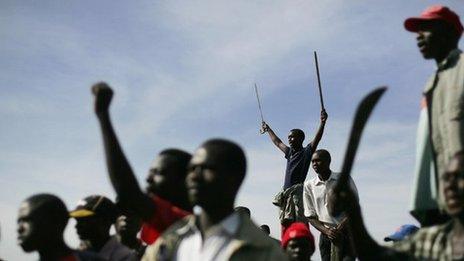
- Published17 September 2012
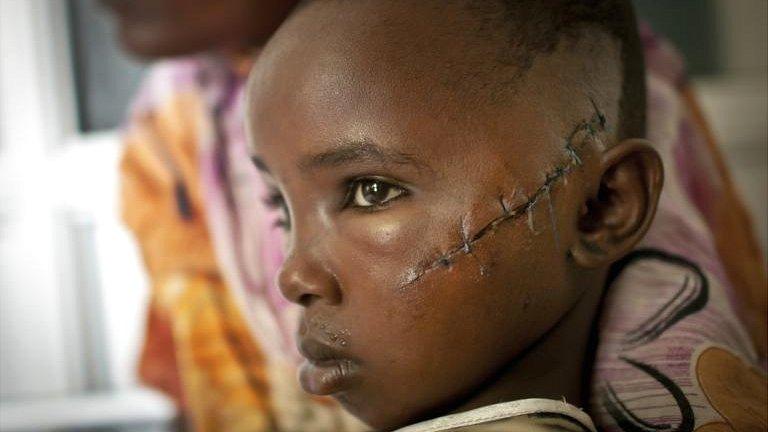
- Published4 July 2023
